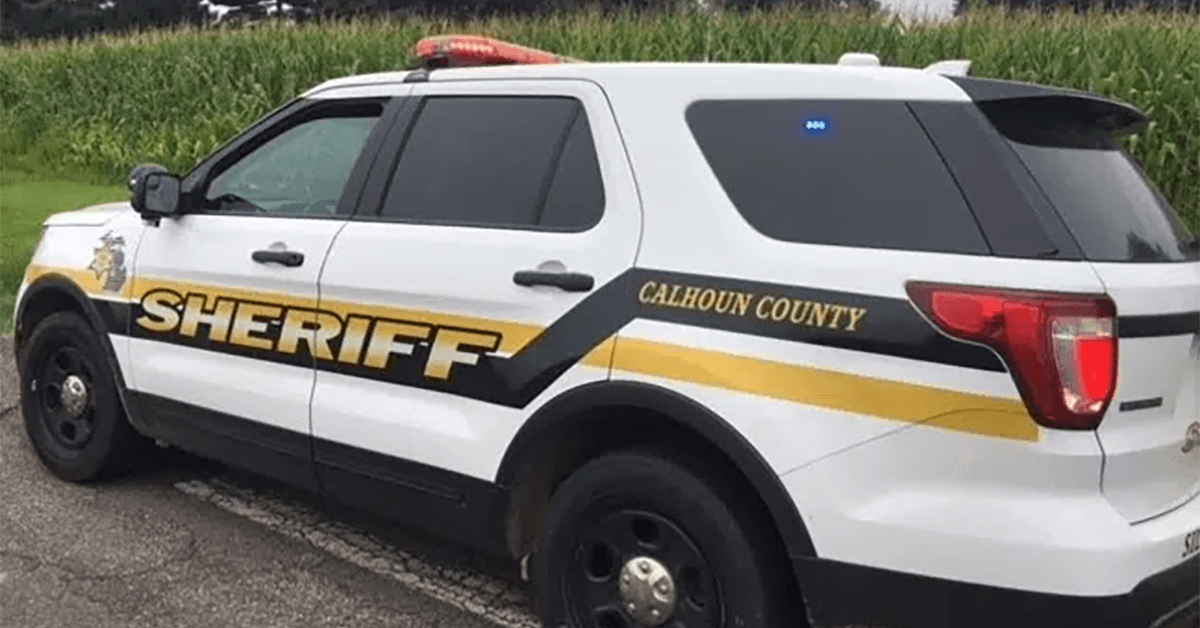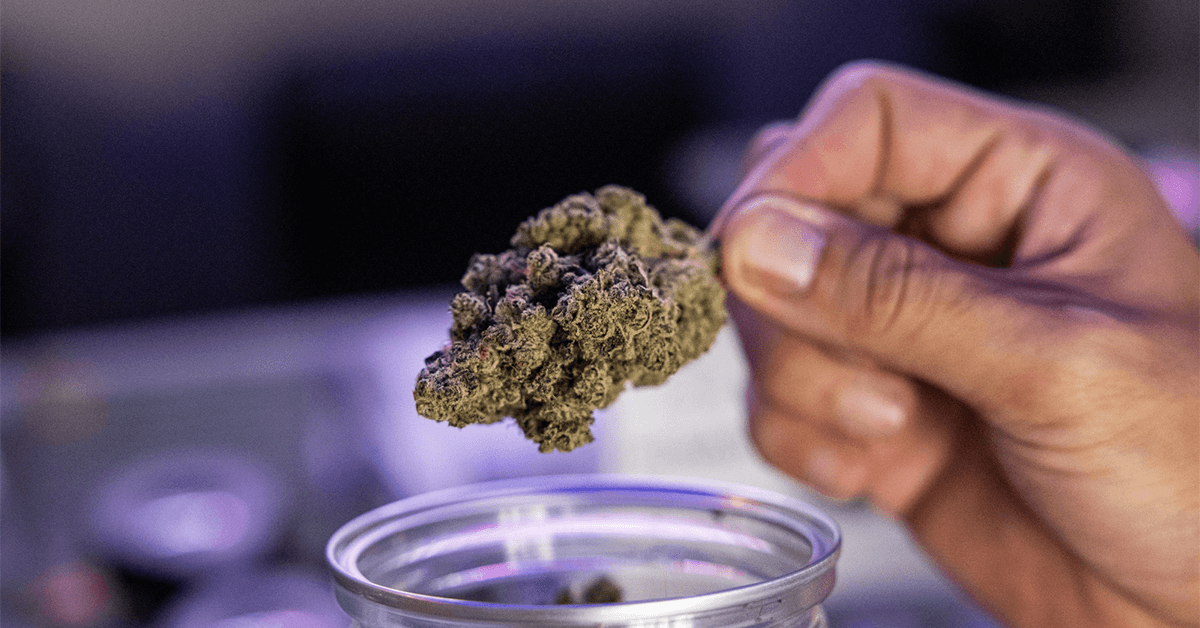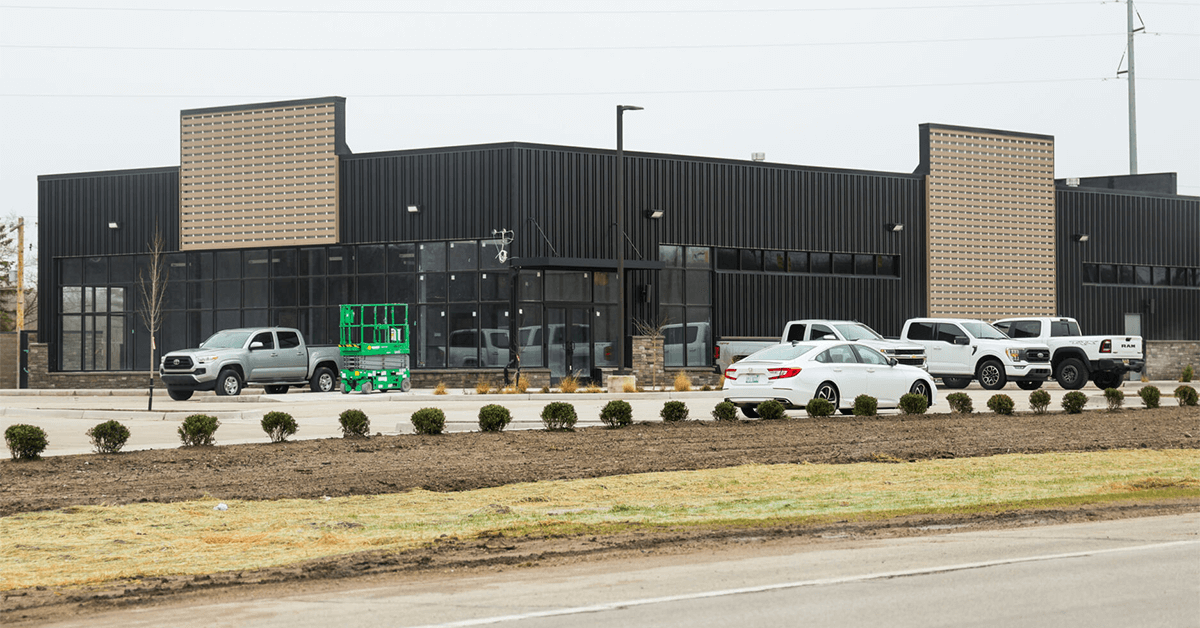Illegal Cannabis Grow Operation Uncovered Following Animal Welfare Check in Pennfield Township

In Pennfield Township, Michigan, a response to an animal welfare complaint unveiled an extensive illicit cannabis cultivation operation. The incident, occurring in Calhoun County, began when deputies were summoned to a residence on the 300 block of Cooper Street. Upon arrival, they discovered the carcasses of four goats at the rear of the premises, prompting further investigation.
Authorities subsequently secured a search warrant for the property to probe for additional animal welfare concerns. The search, conducted on the following day, led to the discovery of a significant cannabis grow operation housed within one of the property's buildings. Law enforcement officials reported the confiscation of over 140 cannabis plants and various cultivation equipment from the site.
As of now, there has been no announcement regarding arrests linked to the operation. The investigation into both the animal welfare complaint and the illegal cannabis grow continues, highlighting the ongoing challenges faced in regulating cannabis cultivation and ensuring animal welfare.
Reducing Drug Overdose Deaths through Cannabis Donations

Recent research published in the Harm Reduction Journal highlights the benefits of providing free cannabis through harm reduction organizations as a means to decrease drug overdose deaths and enhance the quality of life for users. This groundbreaking study, based on a cannabis donation program in a rural area of Michigan, represents the first documented instance of such a practice in the United States. Researchers suggest that with supportive state laws, this harm reduction approach has the potential for sustainability.
The study underscores the challenges posed by current regulations surrounding cannabis distribution but acknowledges the significant benefits recognized by harm reduction staff. These benefits include a reduction in premature deaths, improved quality of life, moderation of pain, better recovery outcomes, and increased safety for both clients and the community.
During the study period, from September 2021 to May 2023, ten individuals with previous cannabis experience received weekly donations of cannabis. The recipients, selected by clinical staff based on their interest and suitability, reported various positive outcomes.
One notable case involved a person over 50 who underwent a significant neck surgery but managed to abstain from alcohol during recovery, thanks to the cannabis products received from the program. Another case involved a pregnant woman in her 20s, homeless and dependent on methamphetamine and opioids, who reported a reduction in her use of these substances with the help of donated cannabis products and support from harm reduction staff.
The research also delves into the types and scale of cannabis products donated, with findings indicating that while flower products are predominant in sales, donations mainly consist of edibles, oils, and topicals. The study reveals that the cost of donations is a minimal fraction of total gross sales for the donating cannabis companies, suggesting the economic feasibility of such programs.
Authored by researchers from RTI International, Rutgers University School of Social Work, and San Francisco General Hospital, the study calls for further research to fully understand the implications, legal frameworks, and best practices for cannabis donation as a harm reduction strategy. The ongoing crisis of overdose deaths, largely driven by illicitly produced synthetic substances, underscores the urgency of exploring all potential harm reduction tools, including the safe use of psychoactive substances like cannabis.
This initial inquiry into cannabis donation programs not only demonstrates their practicality but also lays the groundwork for future studies aimed at evaluating their impact on public health, individual well-being, and community safety.
High Demand and Supply Shortages in Michigan's Recreational Cannabis Market

The introduction of recreational cannabis in Michigan has sparked significant interest, leading to an unprecedented surge in consumer demand across the state. Enthusiasts, eager to be part of this new era, braved the cold and formed lengthy queues to secure their purchases in northern Michigan. According to Doug Hellyar, president and COO of Lume Cannabis Company, the excitement was palpable, with over 750 customers visiting in just under two days, resulting in sales surpassing $75,000. The average expenditure per customer was reported at $103, highlighting the enthusiasm and willingness of consumers to engage in this newly legal market.
However, this initial success was quickly met with challenges. Lume's subsidiary, Lit Provisioning Centers located in Evart, found itself depleting its stock within the first two days of opening. This was a common scenario across the state, with many dispensaries, including Greenstone Provisions in Ann Arbor, experiencing similar issues, running out of supply on their first day and facing difficulties in daily restocking.
From the onset of legal sales on December 1st, the majority of licensed dispensaries in Michigan have struggled to meet the soaring consumer demand, often having to turn away customers due to insufficient stock.
The core of the supply challenge can be traced back to the pace at which the regulatory framework has been implemented in Michigan. The state's Cannabis Regulatory Agency has licensed only a limited number of distributors, with just 10 approved so far and merely five having started sales. The situation is further complicated by the licensing of only three processing plants and one cannabis transportation company, which hampers the ability of retail outlets to restock their shelves efficiently.
In an effort to manage the limited supply, dispensaries such as Greenstone and Michigan Supply and Provisions have implemented restrictions on purchases, limiting flower sales to 7 grams per customer. Arbors Wellness has set a cap at one-eighth of an ounce per customer, significantly below the state's legal sales limit of 2.5 ounces of flower. This approach aims to ensure a fairer distribution of the available stock among customers.
Despite these challenges, Exclusive Brands has managed to maintain a steady supply, not imposing any purchase limits on their products. They attribute their success to their vertically integrated operations, owning one of the few processing facilities licensed in the state. This advantage allows them to control a considerable portion of the supply chain, ensuring they can meet the high demand without facing the same shortages as other dispensaries.
This scenario underscores the growing pains of Michigan's recreational cannabis market, highlighting the need for an expanded and more efficient regulatory and supply chain framework to meet consumer demand and support the thriving industry.
Cannabis Dispensaries Flourish in Southwest Michigan, Attracting Chicago and Indiana Residents

Residents of Northwest Indiana and the greater Chicagoland area have long been drawn to Southwest Michigan for its picturesque beaches, sprawling sand dunes, charming wineries, craft breweries, and inviting farm stands. However, Harbor Country, known for its summer retreats, cozy Airbnbs, and beach relaxation, is now attracting visitors with a new recreational option: cannabis dispensaries.
Recently, The Rolling Embers, URB, and The Bloomery opened their doors close to Exit 1 on Interstate 94, marking the gateway into Michigan from Indiana. Additionally, King of Budz, a chain with existing locations in Monroe, Ferndale, and Detroit, is in the process of establishing a new store in this prime location. JARS Cannabis is expected to open its doors on U.S. 12 in New Buffalo, near the iconic "Welcome to Michigan" sign, in May. Meanwhile, Pharmhouse Wellness, known for its Grand Rapids location, plans to inaugurate a new dispensary a mile north on U.S. 12 this spring.
This burgeoning cannabis market near the Indiana border, where cannabis remains illegal, is seen as just the beginning. With 35 applications submitted for dispensary operations in New Buffalo Township, the area might soon be a hotspot for cannabis enthusiasts, despite none being located within the city limits of New Buffalo itself. This expansion into New Buffalo Township, a region celebrated for its lighthouses, marinas, and leisurely beach days, might set a new record for dispensary density in Michigan, potentially surpassing urban centers like Ann Arbor, Detroit, or Lansing if all applications are approved.
With a significant investment projected between $50 million and $100 million in the township, the economic impact of these dispensaries is notable. The potential tax revenue from these establishments could provide a continuous financial boost to the local community. In comparison, Michigan's 10% cannabis excise tax brought in $290.3 million statewide last year, illustrating the significant fiscal benefits of the legalized cannabis industry.
The introduction of dispensaries in areas like New Buffalo Township not only generates tax revenue but also creates job opportunities, contributing positively to the economy. Studies suggest that states legalizing recreational cannabis have seen modest but significant employment growth, particularly in agriculture. This growth extends to increased home prices and population, highlighting the multifaceted economic benefits of legalization.
The situation in New Buffalo Township mirrors the economic uplift seen in Monroe, Michigan, driven by recreational cannabis sales to residents from states with stricter cannabis laws. This phenomenon of cross-border commerce, spurred by differences in state laws, reflects broader trends seen in the United States, underscoring the economic incentives for legalization amidst ongoing debates about its social impact.
While research on the effects of cannabis legalization is ongoing, early findings generally point to positive economic impacts alongside a need for careful consideration of potential social costs. As the landscape of cannabis legalization continues to evolve, communities like New Buffalo Township are at the forefront of a significant shift in recreational and economic dynamics.
CRA Issues Warning to Licensed Cannabis Operators in Michigan About Recent Scam

The Cannabis Regulatory Agency (CRA) has issued an alert to Michigan's licensed cannabis businesses regarding a recent scam targeting the industry. A licensed business reported being contacted by someone falsely claiming to be a CRA representative. This individual demanded immediate payment of licensing fees with the threat of license revocation.
The CRA emphasizes that official communications will only be sent through the Accela platform or from a Michigan.gov email address. They also clarified that the agency does not make phone calls to collect fee payments and does not accept alternative payment methods, such as Bitcoin.
Businesses are advised to instruct their staff to confirm the legitimacy of any communications purportedly from the CRA with a manager or owner before proceeding with any payments. Additionally, the CRA highlights the requirement for licensees and applicants to report to both the CRA and local law enforcement within 24 hours upon becoming aware of any theft, loss of product, or criminal activity at their facilities.
The CRA urges those who encounter or suspect fraudulent activities related to these incidents to report them through the agency's online reporting form and to contact local law enforcement. For further inquiries or concerns, the CRA's Field Operations Section can be reached at [email protected].
From California Dreams to Michigan Reality: The Expansion Journey of Muha Meds

Muhammad "Muha" Garawi, alongside his brother, launched the Muha Meds cannabis brand with a vision that extends beyond the mere sale of cannabis products. From its inception, Garawi has viewed the brand as a conduit for fostering unity and spreading messages of peace and love through the communal culture of cannabis. The foundation of Muha Meds was laid in California in 2018, amidst uncertain legal conditions for cannabis sales. Within a year, the company navigated its way into the legal marketplace, setting a precedent for growth and expansion that would later extend to Michigan's budding cannabis scene.
Muha Meds' journey into Michigan was marked by a blend of aspiration and strategy, aiming to infuse the state's market with the essence of LA's cannabis culture and lifestyle. The expansion was not just about introducing their products—ranging from edibles and vape pens to concentrates—but also about embedding the brand within the local community, contributing to and learning from Michigan's rich hospitality and culture.
Employing 300 people and securing shelf space in 150 dispensaries across Michigan, Muha Meds has made significant strides in the state. However, the journey has been interspersed with challenges, notably when the Michigan Cannabis Regulatory Agency suspended the company's license due to health and safety concerns. Despite these setbacks, Garawi emphasizes the brand's commitment to excellence and compliance, stating that the issues leading to the suspension have been thoroughly addressed and resolved. This commitment underscores the brand's dedication to maintaining high standards in product quality and safety, a testament to their resilience and determination to grow within the regulatory framework of the Michigan cannabis market.
Muha Meds' approach to business and product development is characterized by an emphasis on quality, affordability, and cultural integration. The decision to control every aspect of their manufacturing and distribution processes has allowed them to offer superior products at competitive prices, distinguishing themselves in a market that is increasingly crowded and competitive. Garawi points out the saturation in the cannabis market, where many producers prioritize cost-saving over quality and branding. In contrast, Muha Meds aims to create value by aligning their products with art, music, and fashion, thus crafting a unique identity that resonates with consumers seeking more than just a cannabis product.
The brand's expansion into Michigan was partly motivated by the state's business-friendly tax policies, which have facilitated the development of Muha Meds as an upscale modern lifestyle brand. This strategic move has enabled them to stand out by offering an innovative blend of cannabis and culture, appealing to a diverse customer base looking for products that reflect their lifestyle and values.
Muha Meds' recent introduction of a new line of 2-gram disposable vape pens highlights their ongoing innovation and commitment to providing convenient, discreet, and high-quality cannabis experiences to their customers. This addition to their product line represents the brand's adaptability and responsiveness to consumer preferences, further cementing their position in the Michigan cannabis market.
As Muha Meds continues to navigate the complexities of the cannabis industry, their story is one of resilience, innovation, and community engagement. Despite facing regulatory hurdles, the brand remains focused on its mission to bring people together through the power of cannabis, promising a future filled with growth, collaboration, and cultural exchange in Michigan and beyond.


 Helpful Links
Helpful Links